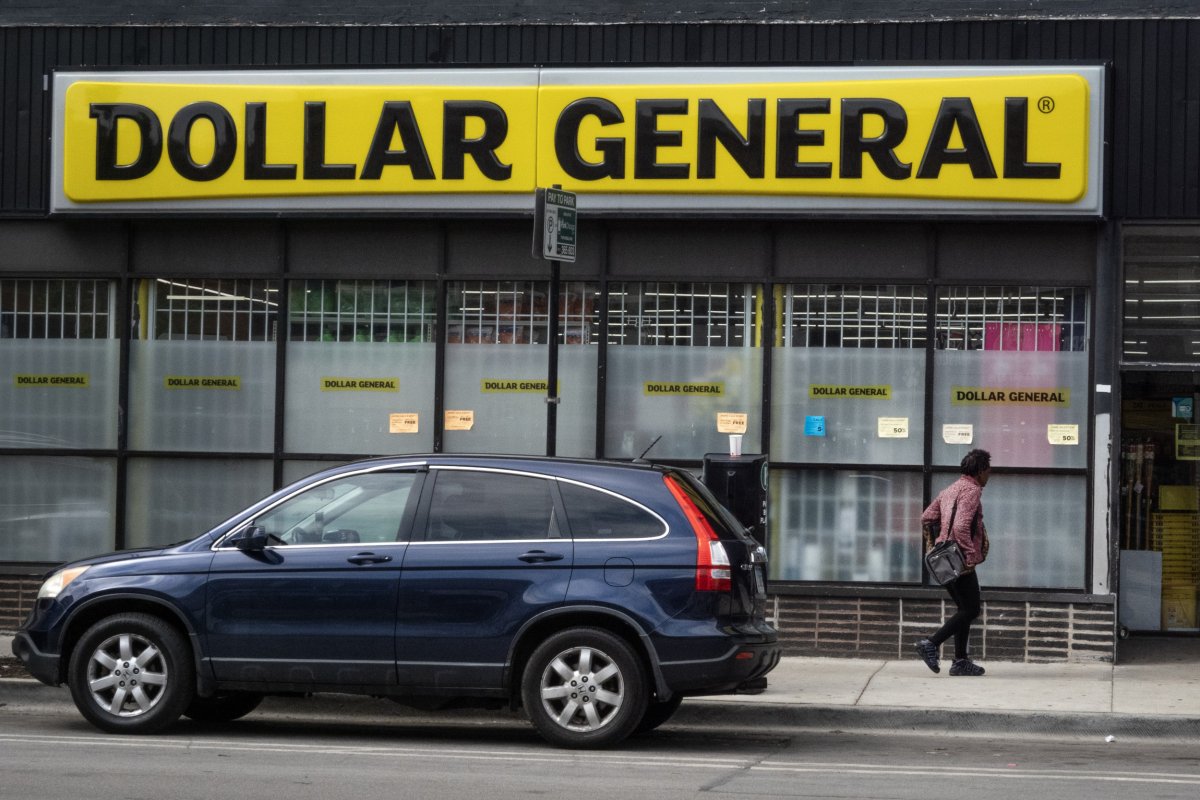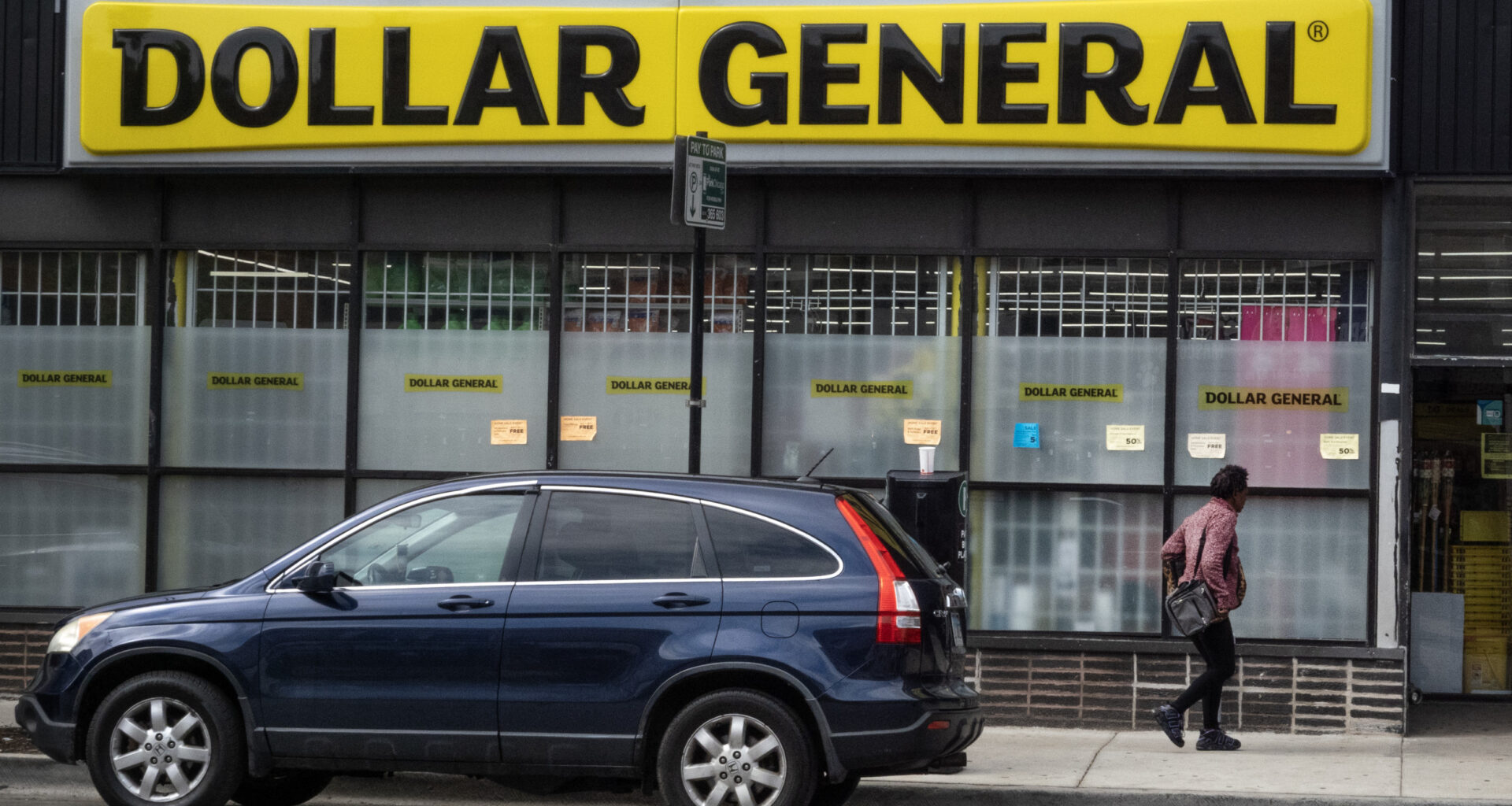Discount retailer Dollar General has said that President Donald Trump‘s trade policies have forced it to raise certain prices.
“Tariffs have begun to result in some price increases,” CEO Todd Vasos said in a call with analysts on Thursday, following the release of the Dollar General’s second-quarter results.
When approached for comment, Dollar General directed Newsweek back to the earnings call, in which Vasos said that the company will work to “minimize” these as much as possible, adding that its “proactive approach” to product sourcing and “relatively low direct import exposure” would help to mitigate tariff headwinds going forward.
Why It Matters
While consumer prices have so far been spared any large-scale effects of President Trump’s trade policies, experts believe companies will increasingly pass the cost of these higher import taxes onto their consumers. A number of American companies have proposed—or already implemented—pricing actions in response to the tariffs.
The administration has maintained that its efforts to rebalance global trade will have minimal inflationary effects, while acknowledging that Americans may experience some short-term difficulties and encouraging companies to shoulder as many tariff-related impacts as possible
What To Know
According to Reuters, which has monitored company announcements since President Trump originally unveiled his “reciprocal tariffs” on April 2, over 20 U.S. companies have announced price hikes while citing these trade measures in their decision. The latest “tariffs sentiment” survey from GlobalData, cited by Investment Monitor, found that 39 percent of companies have raised prices and that an additional 10 percent plan on doing so.
Major brands like Walmart and Home Depot have been among the companies to implement this change. The former’s decision led to a standoff with the Trump administration, which accused the retailer of blaming unnecessary price increases on its trade policy.

A sign for a Dollar General store is seen on May 28, 2025, in Chicago, Illinois.
A sign for a Dollar General store is seen on May 28, 2025, in Chicago, Illinois.
Scott Olson/Getty Images
A recent survey by e-commerce marketing platform Omnisend found that since the implementation of President Donald Trump’s tariffs this year, Americans are collectively spending an additional $12.2 billion per month, averaging $47 more per person. Significantly, 14.7 percent of respondents indicated that their monthly expenses had increased by $100 or more.
“The pressure from tariffs builds in layers,” Omnisend’s e-commerce expert Marty Bauer told Newsweek. “First, it shows up in the fastest-moving goods, things like small online orders, household basics—then it spreads to bigger purchases as new shipments arrive. That’s why the changes will be gradual, not a single spike.”
Last week, Dollar General executives noted that their low price points were proving beneficial to Americans currently facing financial difficulty. The CEO noted that the company had been able to keep many of its seasonal offerings under $1 “even in the face of tariffs,” and emphasized its continued commitment to low prices going forward.
What People Are Saying
Dollar General CEO Todd Vasos, during the company’s recent earnings call, said: “With the rates currently in place, we believe we will be able to mitigate the majority of the impact on our cost of goods. The proactive approach of our sourcing team coupled with our relatively low direct import exposure has positioned us well to serve our customers with a quality assortment at tremendous value.”
Telsey Advisory Group, in a note shared with Retail Dive, said: “[Dollar General] seems to be executing well and making progress on its transformation — transitioning to a mature retailer from a growth retailer.”
“Our broader concern remains tariffs and inflation and the related impact on demand trends, especially for Dollar General’s core lower-income customers,” the analysts added.
Jean-Pierre Dubé, professor of marketing at the University of Chicago Booth School of Business, recently told Newsweek: “Many companies have been holding off on price increases not only because of the unfavorable optics in a climate where customers are angry about rising costs, but also because of the real threat of lost demand (i.e., elasticity). The key cause for delay is the lingering concern that some tariffs may be temporary and that subsequent ‘deals’ may have them repealed or, at least, reduced. So before triggering customers and, worse, driving some of them away to competitors, many companies are rolling out price increases extremely slowly.
“I think many companies will look for continued ways to increase prices in less salient ways. This raises some serious ethical concerns,” he added. “Recall the wave of shrinkflation over the past few years, where consumer goods reduced their package sizes in ways that would go un-noticed by the typical consumer, but did not lower the price.”
What Happens Next?
On Friday, a federal appeals court ruled that the majority of Trump’s duties—including his “reciprocal tariffs” were illegally imposed, and an unjust use of a president’s emergency powers. This upholds a May ruling from the Court of International Trade, but the decision will not go into effect until October 14.
However, the administration intends to appeal this decision to the Supreme Court, and Trump has said that it will be requesting an “expedited ruling” to mitigate any economic consequences of the decision.

